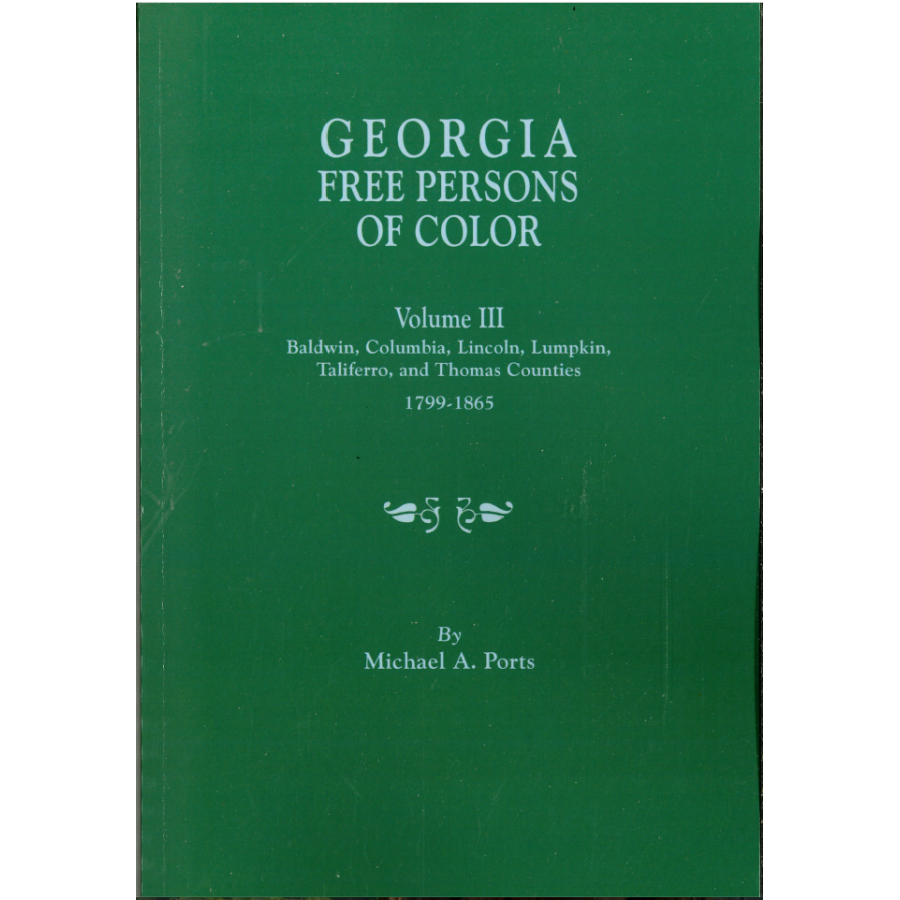Georgia Free Persons of Color, Volume III: Baldwin, Columbia, Lincoln, Lumpkin, Taliaferro, and Thomas Counties, 1799-1865
Couldn't load pickup availability
An 1818 statute of the Georgia legislature required all free persons of color to register with the inferior court of their county of residence. According to the statute, county clerks were required to inscribe each freed man or woman by name, age, place of birth, residence, year arrived in Georgia, and occupation. While not all clerks performed their duties to the letter of the law, these source records contain vital identifying information for African-American Georgians long before the Civil War or the watershed 1870 U.S. census. The ensuing registers, varying in their completeness, survive for twenty-one Georgia counties.
The only way to emancipate a slave in Georgia was by an act of the legislature. Antebellum manumissions, though rare, were granted for unusual acts, such as defending an owner's property during a British incursion during the War of 1812, extinguishing a fire at the state capital, and other faithful service.
Transcriptions of the aforementioned registers are available in the Georgia Free Persons of Color series from genealogist Michael A. Ports. This is the third book in that series; it consists of transcriptions of the free black registers for the Georgia counties of Baldwin, Columbia, Lincoln, Lumpkin, Taliaferro, and Thomas. Mr. Ports has arranged the contents of the record books in a series of tables, county by county and chronologically thereunder. A full-name index at the back of the volume provides for easy searching. Because the recording styles of the county clerks differ from one another, or from year to year, the author has provided an overview of the registers he found in each county, references to any gaps in the registers, handwriting irregularities or peculiarities, and so on. In addition to the required information, a few clerks recorded the registrant's height, weight, skin color, and name of their guardian. Persons of a historical mindset will appreciate Mr. Ports' inclusion, in the front matter, of the wording of salient Georgia laws from 1818 to 1835 that mandated the registration of free Negroes. These are followed by the Georgia manumission statutes enacted after 1798. Finally, since, in theory, the freedmen and women were required to register themselves every year after 1818, researchers will be able to track the whereabouts or disappearance of individuals over time.
Michael A. Ports
2015, paper, 186 pp.
ISBN: 9780806357775
102-8478
